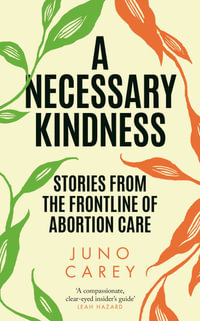"[The author's] careful analysis of multiple discourses, makes clear how innovative the debate over abortion in Weimar Germany was. The popular cultural evidence and the medical discourse and the criminal law cases tell us somewhat different things about how abortion was understood at this historical moment; Usborne's analysis and juxtaposition of these various meanings is masterful and persuasive." · H-German
"...The author offers a shift of paradigm in the history of abortion in Weimar Germany by writing a history of everyday life from the point of view of lower-class women as well as revealing the professional interests of physicians. Even committed sex reformers like the Munich gynaecologist Adams Lehmann appear ambivalent since she sterilised her abortion patients on eugenic grounds without consent." · Historische Zeitschrift
"...a richly textured analysis of medical and lay abortion discourses and practices, artistic representations of the procedure, and of women's, particularly lower-class women's, own perceptions and experiences of abortion. Skilfully using an impressive variety of sources, Usborne provides a meticulous, insightful, and lively study that questions some of the continuing assumptions about the Weimar Republic.and provides an exciting example of how to approach the history of the body." · Medical History
"Based on a careful reading of court files, this investigation reveals a rich and often ambiguous repertoire of perceptions and descriptions...Cultures of Abortion is not only the seminal study on one of the most contested and high-profile issues in Weimar politics, it is also a superb demonstration of how 'gender' can be used to complicate well established historical narratives." · German History
"With inspiration from Alltagsgeschichte(history of the everyday) and body history, Usborne presents a fascinating collection of stories about how abortion was practiced in both rural and urban, medicalized and folk-healing contexts...[It] performs several valuable services. It brings us far closer to the actual experiences of Weimar women who underwent abortions than we have ever been before, it usefully questions our tendency to respect complex medical procedures over simpler but often just as effective techniques, and it provides considerable evidence that the practice and social acceptance of abortion were far more widespread in this period than previously appreciated." · Bulletin of the History of Medicine
"Historically, abortion was a key coordinate of sexual lives and heteroerotic experiences. Placing those lives and experiences into meaningful engagement with abortion history remains a daunting but vital challenge for its historians, one to which Usborne's innovative study makes a wonderful contribution." · Cultural and Social History
"This revealing study teases out the various ways that official discourses often clashed with womenâs everyday experiences and attitudes towards abortion...Overall, this monograph is an important addition for any scholar interested in abortion, the body, medical discourses, gender and modern Germany." · H-Soz-u-Kult
"Usborne provides a vivid picture not only of...individuals, but of the communities that they lived in and the social networks that facilitated their relationships and contacts. Many of her conclusions are fascinating...[a] compelling book." · German Studies Review
"The book includes introductory and concluding chapters that effectively place the story in the historiography of modern Germany and of modern abortion and, more broadly, the female body. Usborne's monograph contains much of worth and interest for scholars and students of moder

























